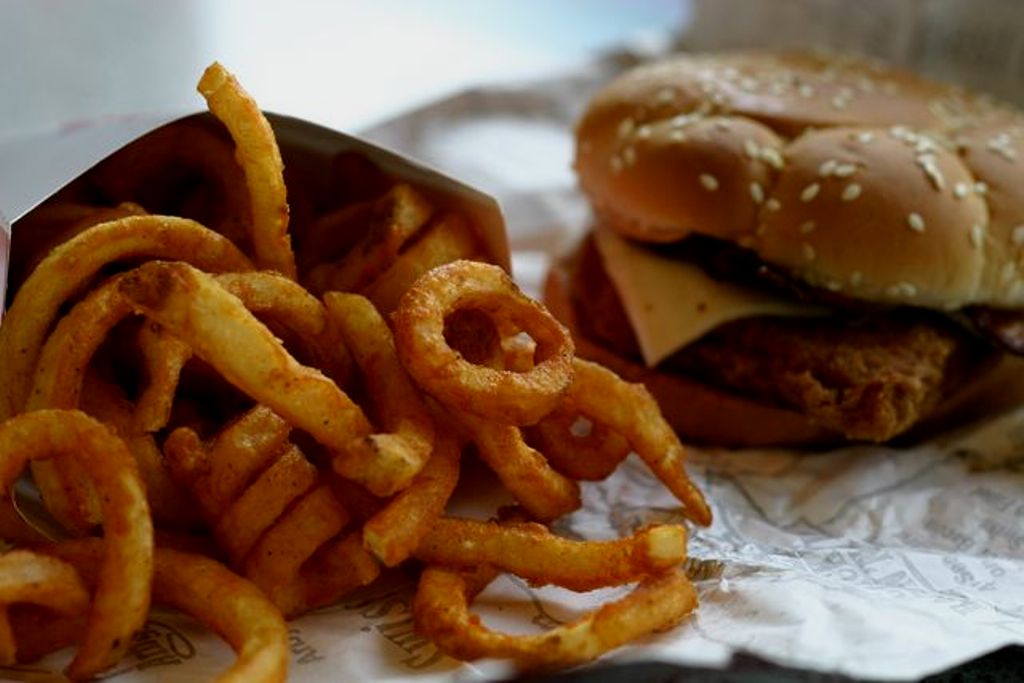

RECOMMENDED READING
In a world so “Orwellian” that the term has lost its oomph with too much use (one wonders if Eric Blair would advise against continuing its employ on grounds that now it, too, is “ugly and inaccurate”) perhaps “health care” is our most Orwellian bit of obfuscation. There are lots of reasons to suggest this, including the role the phrase plays in arguments about certain kinds of politically fraught surgical procedures. But I want to step back to something even more basic than doctor-assisted experiments and executions in bodily autonomy, to simple bodily health. America is very fat. Being very fat is bad for you. Being very fat is expensive. Our health care system is in need of improvement, but no answer, whether a public option or something else, is going to work unless we can be honest about what all these empty calories are doing to us, and who profits by it.
According to this depressing but handy guide, more than 70 percent of Americans over the age of 20 are overweight, with about 36 percent obese. Almost 20 percent of children (2 to 19) are obese, with many more overweight. These are astonishing numbers, even on first glance, but big numbers are hard to picture, especially big numbers like 70 million or so obese Americans. If like many, perhaps too many, readers of the Commons, you live in a middle- or upper-middle-class professional neighborhood in the suburbs of a metroplex and buy much of your food at a nearby grocery, you cannot picture what this looks like; there are cruel class and race divides on the scale in America, and the burden is not shared equally. You know overweight people, of course, but the obese are largely still novelties to you. Certain of your peers, however, have decided to celebrate this enormity as a giant new kind of civil rights cause, the right to not feel badly about yourself, only bigly. They, and the food and pharmacy conglomerates they are enabling, are killing people.
Conforming to the standard pattern of the Covid-19 response, a year ago many non-institutional health and fitness experts advised that metabolic health or disease was likely a major factor in outcomes for the infected. For instance, CrossFit (I do not do CrossFit; you would have heard about it already if I did) put together a host of materials surveying medical literature on inflammation, adipose tissue, and the causes of chronic disease, advising that the related states of low-inflammation and high metabolic function would improve outcomes in case of illness. But it is only now, 12 months later, that mainstream popular media and institutional voices are admitting that many, many, many people who died with or of Covid or have experienced complications related to the virus were overweight. There was no CDC, or NIH, or WHO announcement last year, though, advising Americans to watch what they ate or to get outside and take a walk; instead, it was quite the opposite, as people were encouraged to order in food rather than buy groceries, and gyms, parks, and paths were closed. Indeed, the calendar has seen significant weight gain for many Americans, with Millennials in one study reporting an astonishing average of 41 pounds of gained weight.
A fat population is expensive even without a global pandemic exploiting the opportunity it represents. It is also, conversely, to get back to that Orwellian sense of health care, very profitable for a food and medical industry that keeps them addicted and sufficiently alive to feed their addiction. Reflect a moment on the significance of a company that produces insulin pens—and recently raised their price—promoting putting an “end to weight bias.” A CDC survey of obesity costs includes a 2009 paper that found that medical expenses for obesity-related health issues came out to $147 billion in 2008 dollars. There’s a cost to security, too, as almost a third of draft-age Americans are too fat to qualify for the armed services. Moreover, the isolating effects of obesity that make regular employment difficult cost more than $3 billion on the low end in annual nationwide productivity, according to a 2008 literature survey the CDC cites.
But it would be wrong to say the reason we should object to an obese population is the dollars they drain, whether by making shared-costs more expensive or (the same thing at a different scale) requiring tax-supported assistance. Their consumption, of calories and drugs, makes the Big Line go up, too, after all. The human person, no matter how large, is not just an economic unit. No, we should object to a fat America because we love our fellow citizens and want them to flourish. And flourishing is more than preference maximization. We are human beings, a type of animal. We forget this, playing Orwellian language games, but the very concept of health care and the medical profession implies that there is a right functioning of our organism, a dynamism to be cared for and maintained. Freedom is found within limits; it is not freedom for my arm to reach somewhere it could not before because now it is broken. So, too, it is not freedom to eat yourself into misery, living for the little endorphin rush of that next bite of food. Public policy and law cannot make people virtuous, but it can constrain their vision, be a curb and guide, so that it is a little bit easier to overcome their appetite, and thus disease. We did it with cigarettes. And public figures can provide a vision, and should, of a healthier country, of an American people vigorous, at ease in their bodies, ready to walk boldly into an uncertain future.
Recommended Reading
Why Conservative Populists Should Care About Health Care
The reasons for conservative populism’s seeming neglect of health care likely has more to do with the newness of the movement than any prejudice against health policy itself.
When Farmers Are Not Farmers and Shepherds Are Not Shepherds
For too long we have let memories we cherish—of farms and farmers, of homesteads and pioneers, of cowboys on the range and Native Americans hunting the great herds—disguise how much we have lost and abandoned.
Breaking Points: Americans Drowning in Health Care and Housing Costs
Breaking Points covers American Compass’s Cost-of-Thriving Index












